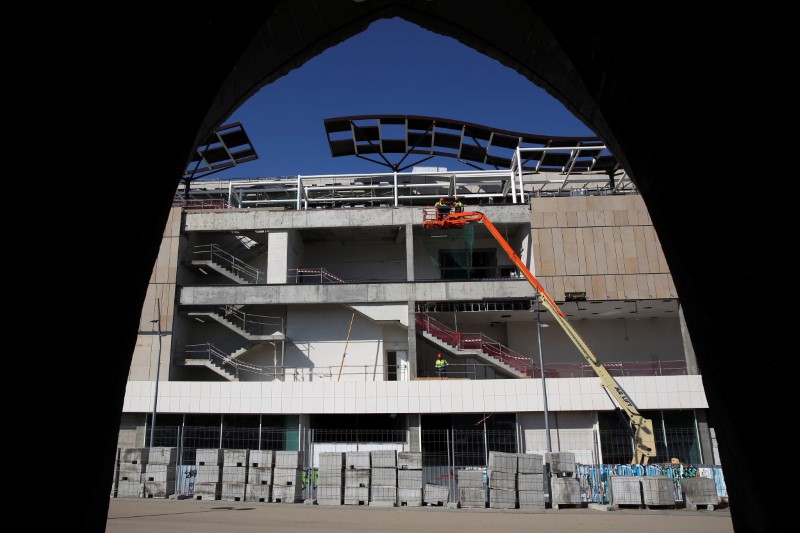Investing.com’s stocks of the week
By Blanca Rodríguez
MADRID (Reuters) - Spain's government on Tuesday hiked its 2018 growth forecast to 2.7 percent from 2.3 percent previously as it unveiled an overdue budget draft for this year which it however lacks parliamentary support to adopt.
The new prediction is a sign the Spanish economy remains unaffected by a political crisis in Catalonia which has unnerved investors and prompted hundreds of companies to move out of the restive region or review investment plans there.
The economy ministry said the new forecast was the result of easing political uncertainty and expectations that the world and European economies would expand more than initially thought in 2018.
Credit rating agency S&P last week raised Spain's sovereign credit rating to A- from BBB+ and kept its outlook positive saying the Spanish economy would expand faster than the rest of the euro zone while the budget deficit would keep shrinking and the overall economic performance would likely not be hampered by the situation in Catalonia.
While the Catalan crisis has not weighed significantly on the economy, it has brought to a halt parliamentary activity in Madrid as the many parties forming the national assembly are divided on how to deal with the issue.
The Basque nationalist party PNV, which votes are needed to pass the budget law, has said it would not help pass the bill until the government resolves the situation in Catalonia.
Rajoy, who has already reached a deal with centrist party Ciudadanos on tax cuts and on boosting public pensions and salaries of public workers, is hoping the PNV will soon reconsider its position.
"The government calls on all political parties to behave in a responsible way in the upcoming parliamentary debate and defend the general interest. Passing the budget law is a shared responsibility for all," the government's spokesman Inigo Mendez de Vigo told a news conference.
If no deal is reached, the government is expected to extend the 2017 budget into 2019 when a general election has been penciled in for the end of the year.
The government said on Monday it had met the target it agreed with the European Union to reduce its public deficit to 3.1 percent of GDP for 2017 and confirmed its 2.2 percent goal for this year even if no new budget is voted.
It also sees the unemployment rate, currently the second highest in the euro zone after Greece, falling to 15 percent at the end of the year.
